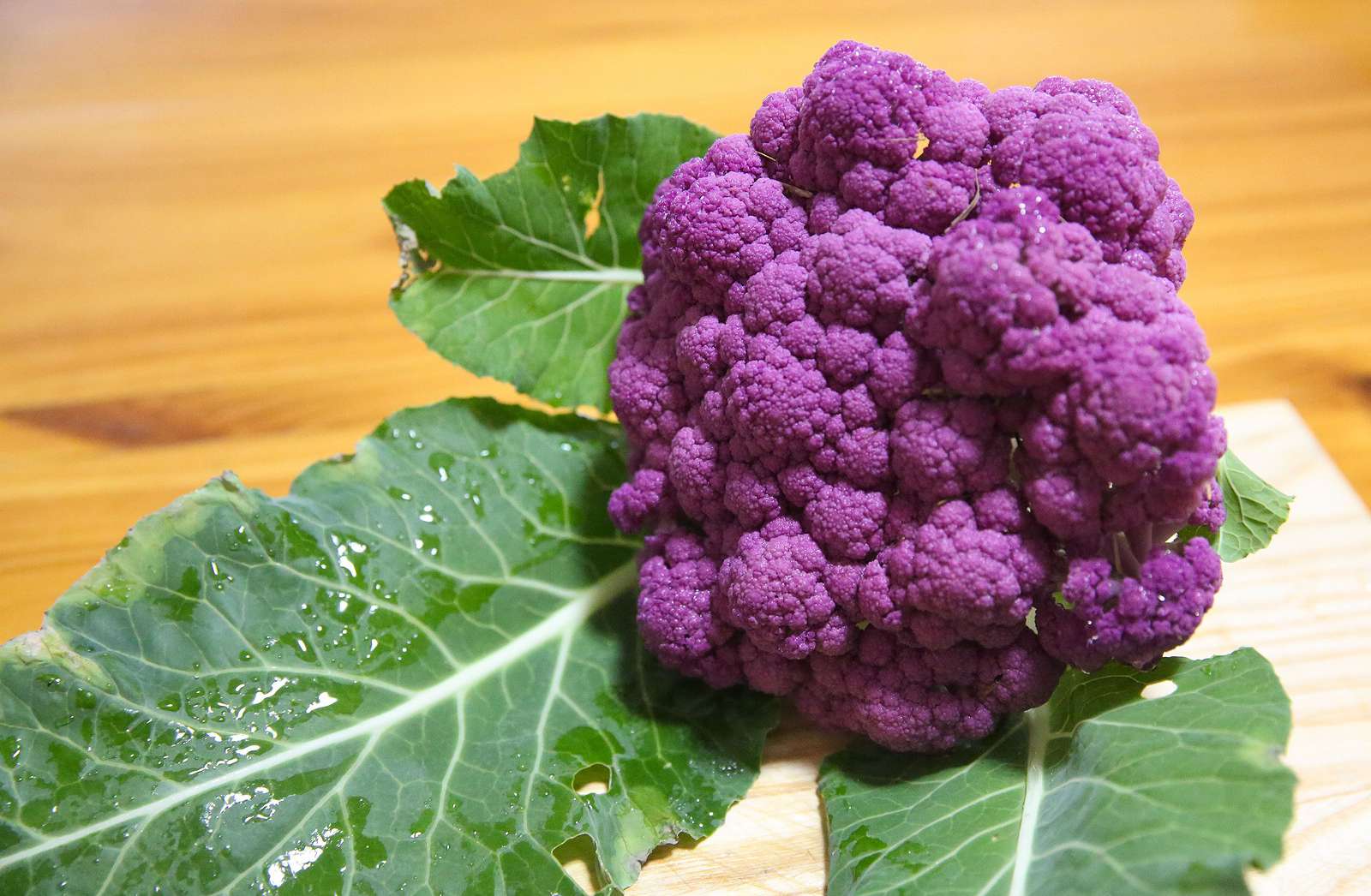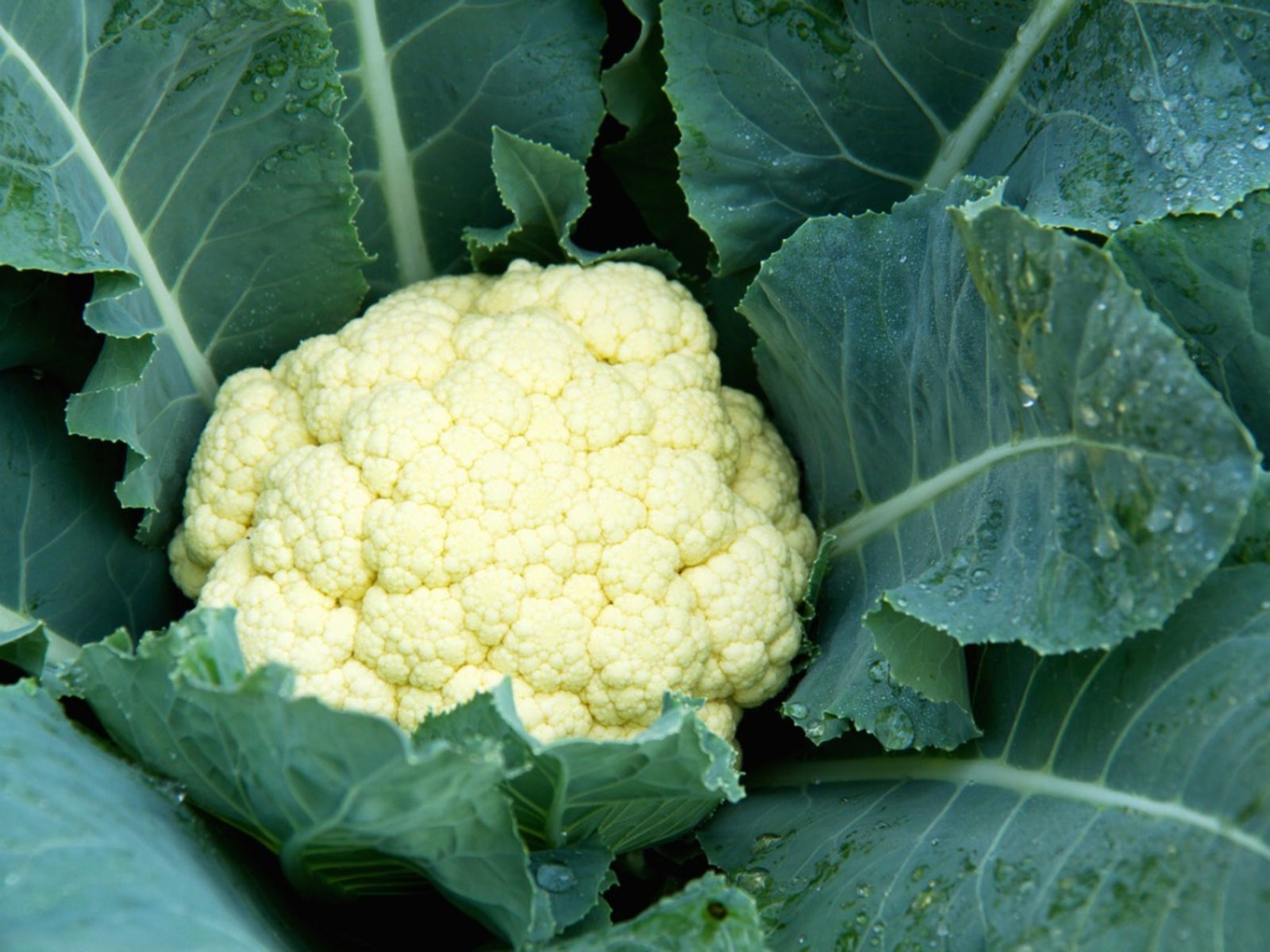Cauliflower, a humble yet versatile cruciferous vegetable, boasts an impressive array of your health benefits that make it a true nutritional powerhouse. Packed with essential nutrients and compounds, cauliflower is a potentially in promoting overall well-being and preventing various diseases. Let's delve into some of its key attributes:

Nutritional Value:
Cauliflower is a nutritional treasure trove, brimming with vitamins, minerals, and dietary fiber. It's an excellent source of vitamin C, vitamin K, vitamin B6, and folate. Additionally, it provides essential minerals like potassium and magnesium, while remaining low in calories, making it an ideal addition to your diet.

Skin Health:
Cauliflower contains antioxidants and phytonutrients that contribute to healthier skin. These compounds help combat oxidative stress and free radicals, which can lead to premature aging and skin damage. Regular consumption of cauliflower may contribute to you a clearer, more radiant complexion.

Inflammation Fighter:
Chronic inflammation is a common underlying factor in many health issues. Cauliflower contains sulforaphane, a powerful compound with anti-inflammatory properties. Consuming cauliflower may help reduce inflammation, potentially lowering the risk of chronic diseases.

Cancer Prevention:
Sulforaphane, found abundantly in cauliflower, has demonstrated remarkable potential in inhibiting the growth of cancer cells and supporting apoptosis (programmed cell death) in certain types of cancer. Regular consumption of cauliflower is associated with a reduced risk of various cancers, including breast, lung, prostate, and colon cancer.

Protect from Diabetes and Heart Health:
Cauliflower's fiber-rich content and low glycemic index contribute you to better blood sugar control, making it a valuable addition to diabetic diets. Furthermore, its antioxidants and anti-inflammatory properties can promote cardiovascular health by reducing the risk of heart disease and improving your blood vessel function.
Bone Strength and Blood Clotting:
Vitamin K, abundant in cauliflower, plays a vital role in bone health by aiding in calcium absorption and promoting bone mineralization. Additionally, adequate vitamin K intake supports proper blood clotting, ensuring timely wound healing and preventing excessive bleeding.
Immune System Support:
Cauliflower's impressive nutrient profile, particularly its vitamin C content, contributes to a robust your immune system. Vitamin C is known for its role in enhancing immune function and protecting your body against infections.

Incorporating cauliflower into your diet can be simple and enjoyable. It can be enjoyed raw as a crunchy snack, roasted for a delightful side dish, mashed as a healthier alternative to potatoes, or blended into soups for added creaminess and nutrition.
In conclusion, cauliflower's exceptional nutritional value and myriad health benefits make it a must-have in any balanced diet. From supporting skin health to combating inflammation, cancer, diabetes, and heart disease, cauliflower truly earns its reputation as a remarkable vegetable that promotes vitality and longevity.

Disadvantage of cauliflower :
While cauliflower offers numerous health benefits and is a valuable addition to a balanced diet, there are a few potential disadvantages and considerations to keep your mind:
Digestive Distress: Cauliflower is high in dietary fiber, which can be beneficial for your digestive health. However, for some individuals, consuming large amounts of fiber-rich foods like cauliflower may lead to digestive discomfort, bloating, gas, or even diarrhea. It's advisable to gradually introduce cauliflower into your diet if you're not accustomed to high-fiber foods.
Thyroid Interference: Cauliflower, like other cruciferous vegetables, contains compounds called goitrogens that can interfere your thyroid function. These compounds can potentially inhibit the absorption of iodine, which is essential for thyroid hormone production. Cooking cauliflower or other cruciferous vegetables can help reduce your goitrogen content and minimize this effect. Individuals with thyroid conditions should moderate their intake of raw cauliflower and consult with a healthcare professional.
Oxalates: Cauliflower contains oxalates, naturally occurring compounds found in various foods. In individuals prone to kidney stones or those with a history of calcium oxalate kidney stones, consuming large amounts of foods high in oxalates, including cauliflower, may increase the risk of stone formation. Balancing your diet and drinking sufficient fluids can help mitigate this risk.
Allergies or Sensitivities: While rare, some people may have allergies or sensitivities to cauliflower or other cruciferous vegetables. Symptoms can include itching, swelling, or gastrointestinal discomfort. If you suspect an allergy or sensitivity, it's best to consult a healthcare professional for guidance.
Interactions with Medications: Cauliflower, particularly when consumed in very large quantities, may interact with certain medications, such as blood thinners. It's advisable to consult your healthcare provider if you have concerns about potential interactions between cauliflower and your medications.
Pesticide Residues: Like many fruits and vegetables, cauliflower can carry pesticide residues if not organically grown or properly washed. Choosing organic cauliflower or thoroughly washing and rinsing conventionally grown cauliflower can help reduce pesticide exposure.
Flatulence: Cauliflower, along with other cruciferous vegetables, can contribute to gas and flatulence due to its complex carbohydrates and fiber content. Cooking cauliflower can help break down some of the compounds responsible for gas production.
It's important to remember that these potential disadvantages are often context-dependent and may not apply to everyone. Cauliflower is a nutritious food that can be enjoyed as part of a diverse and balanced diet. As with any dietary change, it's wise to listen to your body and consult with a healthcare professional if you have specific health concerns or conditions.
How can the consumption of cauliflower contribute to a well-balanced and health-conscious diet?
( Image Source : From Google )
IS CAULIFLOWER A FLOWER?
No comments:
Post a Comment